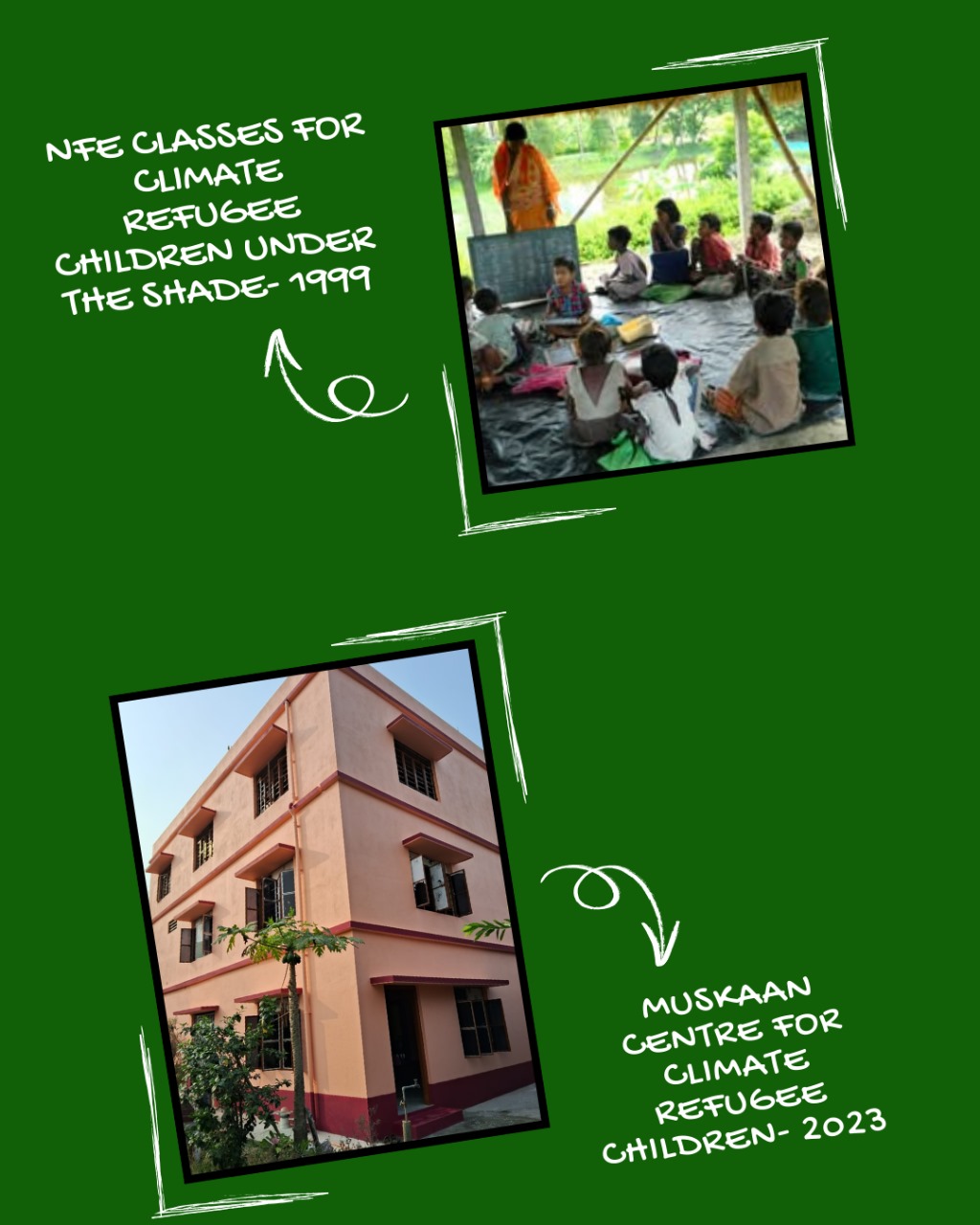

SEED was founded in 1996 by a group of dedicated professionals and social workers in Kolkata, West Bengal, united by a common vision of empowering vulnerable climate affected communities.
Originally named the Naktala Centre for Socio-Economic Reform and Environmental Conservation, the organization began its journey by undertaking relief and development work in the remote rural areas of South 24 Parganas and the Sundarbans, in collaboration with local administrative bodies.
Following the success of these early efforts, SEED was formally registered under the West Bengal Society Registration Act, 1961, and later renamed to reflect its broader mission of fostering socio-economic and ecological development.
In its formative years, SEED focused on promoting land rights and entitlement awareness among marginalized communities, including the Oraon tribe in South Kolkata. Early milestones included an environmental awareness and mapping program in KMC Ward No. 100, supported by the West Bengal Pollution Control Board (1999) and a study on the formation of Self-Help Groups (SHGs) among rag pickers in East Kolkata, supported by CARE India. SEED also spearheaded a self-funded initiative in the East Kolkata Wetlands, advocating for biodiversity conservation and the protection of livelihoods of vulnerable wetland communities.

Over the years, SEED expanded its reach by implementing diverse and impactful training and livelihood programs for unemployed climate affected youth and women, supported by State and Central Government agencies, including NABARD, the Department of Environment, and the Department of Science & Technology, as well as national and global institutions like CARE India and the World Bank.
In 2012 to 2015, SEED played a pivotal role in implementing the World Bank-funded Integrated Coastal Zone Management Project (ICZMP) in Sagar Island, focusing on livelihood enhancement, climate adaptation and disaster resilience for coastal communities.
In 2016-2019, SEED strengthened its work in public health, menstrual hygiene management and literacy programs for dropout students, addressing emerging issues of adolescent health, gender equity and education among climate-affected communities.
During the COVID-19 pandemic in 2019-2020, SEED swiftly mobilized efforts to provide relief, health awareness and safety supplies, particularly among climate refugees and displaced families in the Sundarbans and South 24 Parganas.
SEED continued to expand its climate resilience portfolio in 2020-2024 by implementing renewable energy access particularly solar energy, mangrove restoration and disaster risk reduction projects, including the 'Lighting Lives of Sundarbans' project supported by Signify Innovations India Limited, and the construction of Cyclone Shelter in Ghoramara Island, supported by Rotary International.
In 2022, SEED established the Coastal Biodiversity Centre in Sagar Island with support from JCAPCPL and Bansal Foundation. The centre serves as a hub for community-led conservation, climate education, and adaptation planning. In 2023, SEED set up a Multipurpose Centre in Ghoramara Island, functioning both as a non-formal education (NFE) centre for climate refugee children and a training hub for climate-adaptive livelihoods, further strengthening community resilience and preparedness in one of India’s most climate-vulnerable regions.
As an official member of Wetland Link International (WLI) Asia Oceania, SEED continues to lead environment and climate awareness programs across schools, colleges, health centers and community forums, adopting the CEPA (Communication, Education, Participation, and Awareness) approach.
Today, SEED remains committed to its vision of fostering climate-resilient, inclusive and empowered communities, while continuing to innovate and expand its programs across India's most vulnerable regions.



Subscribe to the SEED Newsletter — and be part of the change!